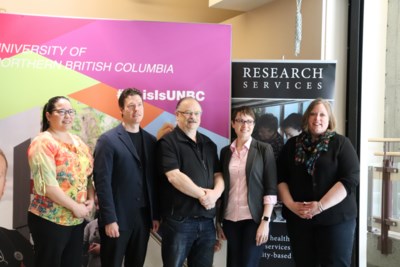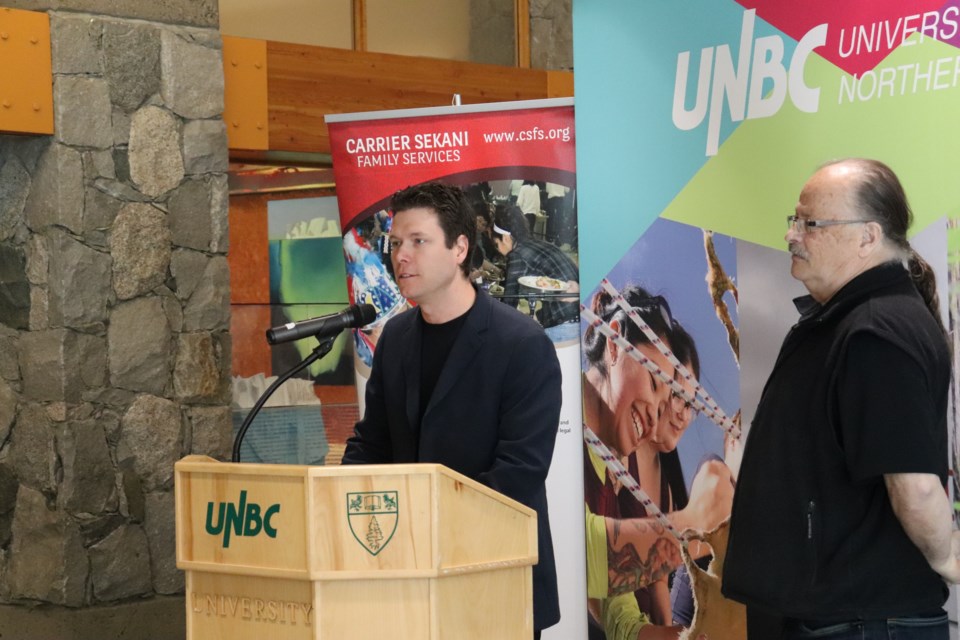When talking about mental wellness and suicide prevention in B.C.’s northern interior, Elders are often overlooked.
The University of Northern British Columbia’s Dr. Henry Harder and Dr. Travis Holyk with Carrier Sekani Family Services (CSFS) are embarking on a new research project that will bridge this gap.
They’ve received a $1.5 million grant for the five-year research project that will build on their previous collaborative work with First Nations communities which has sought to examine and enhance mental health wellness in Indigenous youth and adults.
 The five-year project will focus on Elder mental wellness and suicide prevention. (via Hanna Petersen)
The five-year project will focus on Elder mental wellness and suicide prevention. (via Hanna Petersen)Harder and Holyk began their first research project in 2005, which focused on determining the impact of taking children out on the land and teaching them cultural skills.
“From that we built in to work with an older population of 25-45 because our community said that is an age where we are seeing a lot of suicide and mental health issues because individuals don’t have services that they need,” said Holyk, who is the executive director of research at CSFS, and adjunct professor at UNBC.
He says once they shared their research project on Facebook, they started to get feedback asking ‘what about the Elders?’
“So this grant is an answer to that question what about the elders,” said Holyk. “This research will focus on Elders and their mental health and wellness with some of the same approaches so it actually fits within the Carrier Sekani model of a life cycle approach.”
The funding is provided through the Institute of Indigenous Peoples' Health, part of the Canadian Institutes of Health Research (CIHR). As a critical component, Indigenous research methodology will be used as the framework for all phases of the project.
“It’s been a phenomenal experience as an individual going into the communities with me being welcomed and embraced by elders and others to have that experience across the north has been a life-changing event,” said Harder, also a psychology and health sciences professor, and Dr. Donald B. Rix, B.C. Leadership Chair for Aboriginal environmental health.
“I’m very grateful that we get to close the circle because now, not only has it been three age groups, but it also brings all of them together. We haven’t done that work yet and we are looking forward to it.”
Over the next five years, the project will seek to develop tools and activities that help further increase community mental wellness and improve access to interventions with a specific focus on Elders.
The project will implement and evaluate intervention across member nations of Carrier Sekani Family Services.
It will also seek to share the suite of materials created through the study with other First Nations communities.



